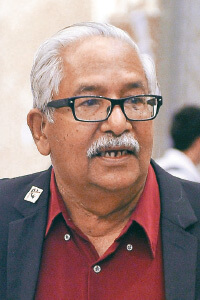
𝗦𝗶𝘅 𝘄𝗮𝘆𝘀 𝘁𝗼 𝗮𝗰𝗵𝗶𝗲𝘃𝗲 𝗮𝗻𝘁𝗶-𝗰𝗼𝗿𝗿𝘂𝗽𝘁𝗶𝗼𝗻 𝗿𝗲𝗳𝗼𝗿𝗺𝘀 𝗶𝗻 𝗠𝗮𝗹𝗮𝘆𝘀𝗶𝗮.
We hope that corruption will one day be a thing of the distant past.
P Kanason delves into a World Bank study on corruption and looks at a few key drivers of anti-corruption reforms.
Corruption and its consequences to our general wellbeing and future progress – this is the talk of the town, the talk of the country and the world. How can we defeat corruption or at least reduce it in our country?
We need not be ashamed of looking to others for assistance. Most importantly, all of us must be involved in this struggle against corruption.
The biggest problem facing our country – other than the fluid political issues as to who should hold the reins of political power – is corruption.
We should analyse corruption, fraud, waste and abuses in the public sector civil service.
Its 20-page executive summary begins with this sentence: ”News headlines over the last few years have been filled with global scandals involving corruption on an unprecedented scale.” The full report is over 330 pages long [pdf file].
Read the highlights of the executive summary from page xv, especially the bits in bold and note its conclusions, in particular:
“While many factors may contribute to the effectiveness of anti-corruption initiatives, there are six cross-cutting drivers of anti-corruption reforms that can be identified from the case studies. Not every factor is evidenced in every case study, but these six factors are present in some combination in each of the cases.
Strong and determined political leadership is often needed to provide vision for reform and a commitment to support increased integrity in the face of opposition from vested interests.
Countries benefit as institutions become more capable, providing checks and balances and fostering accountability. Without strong institutions to assure implementation, reforms risk being short-lived or only superficial.
Transparency can promote greater compliance and improve human behaviour. Open government policies and access to information make corrupt actions harder to hide and contribute to their prevention, particularly when they are linked to engaged and empowered communities and official processes.
Incentives (often captured in social norms) drive behaviour, and the entry points for corruption vary across function of government. Therefore, one needs to focus on corruption at the micro-level and its manifestation in specific sectors or functions and changing the incentives of the perpetrators.
Technology is enabling countries to standardise processes, minimise human interaction and capture comprehensive data that helps establish accountability for a wide range of transactions.
Finally, efforts that foster collaboration among multiple stakeholders, including across international borders, to pursue a common goal achieve greater success.
The above extract does not do justice to the report. The report must be read and discussed fully by our public sector officials.
I am sure the Ministry of Finance has sufficient copies for distribution to all controlling officers, ie heads of ministries and departments.
Kanason Pothinker is a former assistant auditor general of Malaysia

Leave a Reply